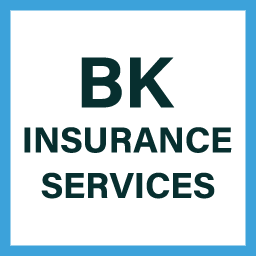We have the answers to your questions.
How do I sign up for Medicare?
Some people get Medicare Part A (Hospital Insurance) and Medicare Part B (Medical Insurance) automatically and other people have to sign up for it. In most cases, it depends on whether you’re getting Social Security benefits.
An individual who is receiving monthly Social Security or RRB benefits at least 4 months prior to turning age 65 does not need to file a separate application to become entitled to premium-free Part A. In this case, the individual will get Part A automatically at age 65.
An individual who is not receiving monthly Social Security or RRB benefits must file an application for Medicare by contacting the Social Security Administration. For more information, contact BK Insurance Services.
What is Medicare and who can get it?
Medicare is the federal health insurance program for people who are 65 or older, certain younger people with disabilities, and people with End-Stage Renal Disease (permanent kidney failure requiring dialysis or a transplant, sometimes called ESRD).
The Medicare program has four parts:
What are the different parts of Medicare?
The other three parts of Medicare might include premium payments, and if you do not enroll when you are first eligible, you may have to pay a late enrollment penalty for as long as you have coverage. Also, you may have to wait to enroll, which will delay coverage.
How much does Part A cost?
You can get premium-free Part A at 65 if:
- You already get retirement benefits from Social Security or the Railroad Retirement Board
- You’re eligible to get Social Security or Railroad benefits but haven’t filed for them yet
- You or your spouse had Medicare-covered government employment
If you’re under 65, you can get premium-free Part A if:
- In most cases, you are receiving Social Security or Railroad Retirement Board disability benefits for 24 months.
- You have End-Stage Renal Disease (ESRD) and meet certain requirements.
How much does Part B cost?
You pay a premium each month for Part B. If you get Social Security, Railroad Retirement Board, or Office of Personnel Management benefits, your Part B premium will be automatically deducted from your benefit payment. If you don’t get these benefit payments, you’ll get a bill.
Most people will pay the standard premium amount. If your modified adjusted gross income is above a certain amount, you may pay an Income Related Monthly Adjustment Amount (IRMAA). Medicare uses the modified adjusted gross income reported on your IRS tax return from 2 years ago (the most recent tax return information provided to Social Security by the IRS).
To learn more about your specific Part B premiums, please contact BK Insurance Services.
When can I join a Medicare Advantage Plan?
There are specific times when you can sign up for a Medicare Advantage Plan (like an HMO or PPO) or Medicare Part D Prescription Drug coverage, or make changes to the coverage you already have:
- During your Initial Enrollment Period when you first become eligible for Medicare or when you turn 65.
- During certain enrollment periods that happen each year.
Under certain circumstances that qualify you for a Special Enrollment Period (SEP), like:
- You move
- You are eligible for Medicaid
- You qualify for Extra Help with Medicare Part D Prescription costs
- You are getting care in an institution, like a skilled nursing facility or long‑term care hospital
- You want to switch to a Medicare plan with a 5-star overall quality rating. Quality ratings are available on Medicare.gov
Please contact BK Insurance Services for a list of different SEPs, including rules about how to qualify.
How can I get a Part D Prescription Drug Plan?
Medicare offers prescription drug coverage to everyone with Medicare. If you decide not to get Medicare Part D Prescription Drug coverage when you are first eligible, you will likely pay a late enrollment penalty unless one of these applies:
- You have other creditable prescription drug coverage
- You get Extra Help
To get Medicare Part D Prescription Drug coverage, you must join a plan run by an insurance company or other private company approved by Medicare. Each plan can vary in cost and drugs covered. Two ways to get drug coverage:
- Medicare Part D Prescription Drug Plans. These plans (sometimes called “PDPs”) add drug coverage to Original Medicare, some Medicare Cost Plans, some Medicare Private Fee-for-Service (PFFS) Plans, and Medicare Medical Savings Account (MSA) Plans.
- Medicare Advantage Plan (Part C) (like an HMO or PPO) or other Medicare health plan that offers Medicare prescription drug coverage. You get all of your Medicare Part A (Hospital Insurance) and Medicare Part B (Medical Insurance) coverage, and prescription drug coverage (Part D), through these plans. Medicare Advantage Plans with prescription drug coverage are sometimes called “MA-PDs.” You must have Part A and Part B to join a Medicare Advantage Plan.

